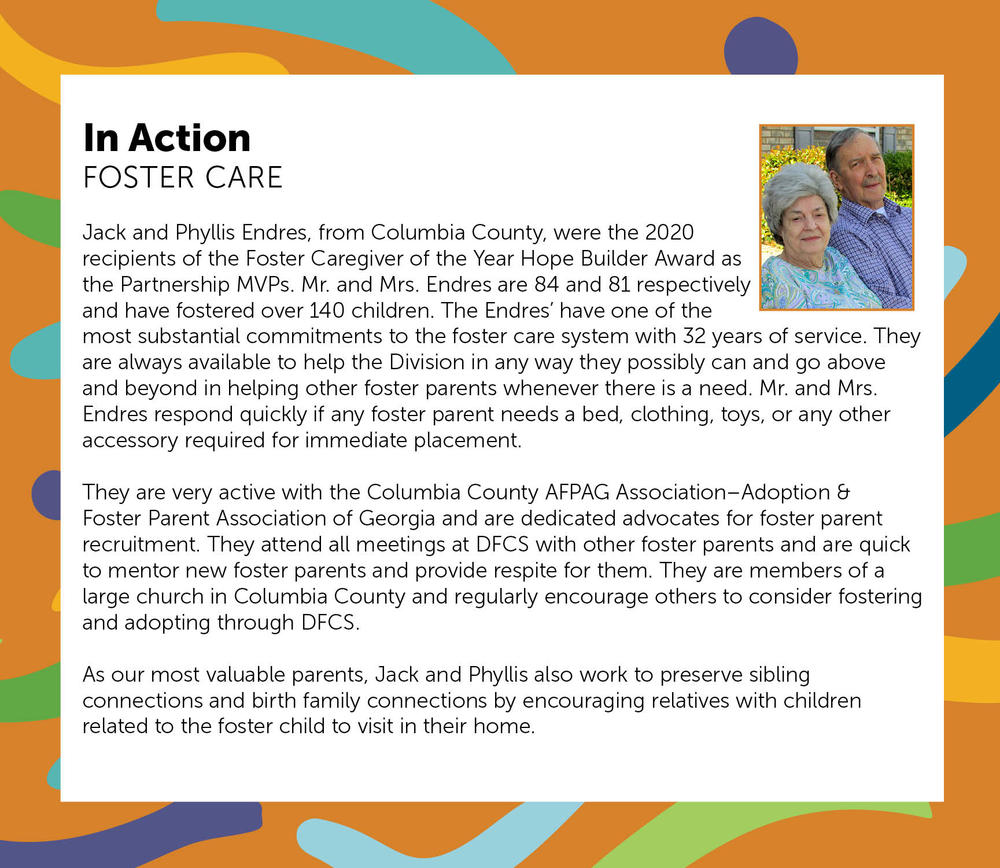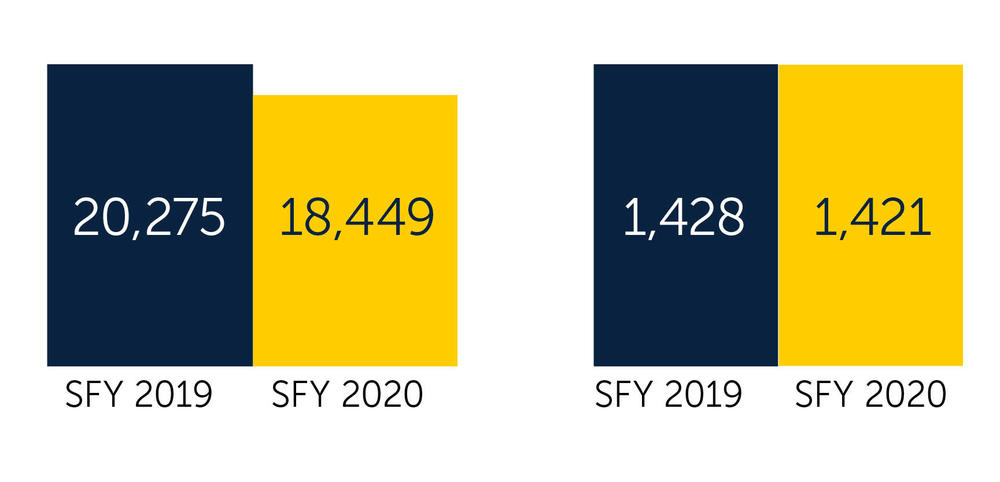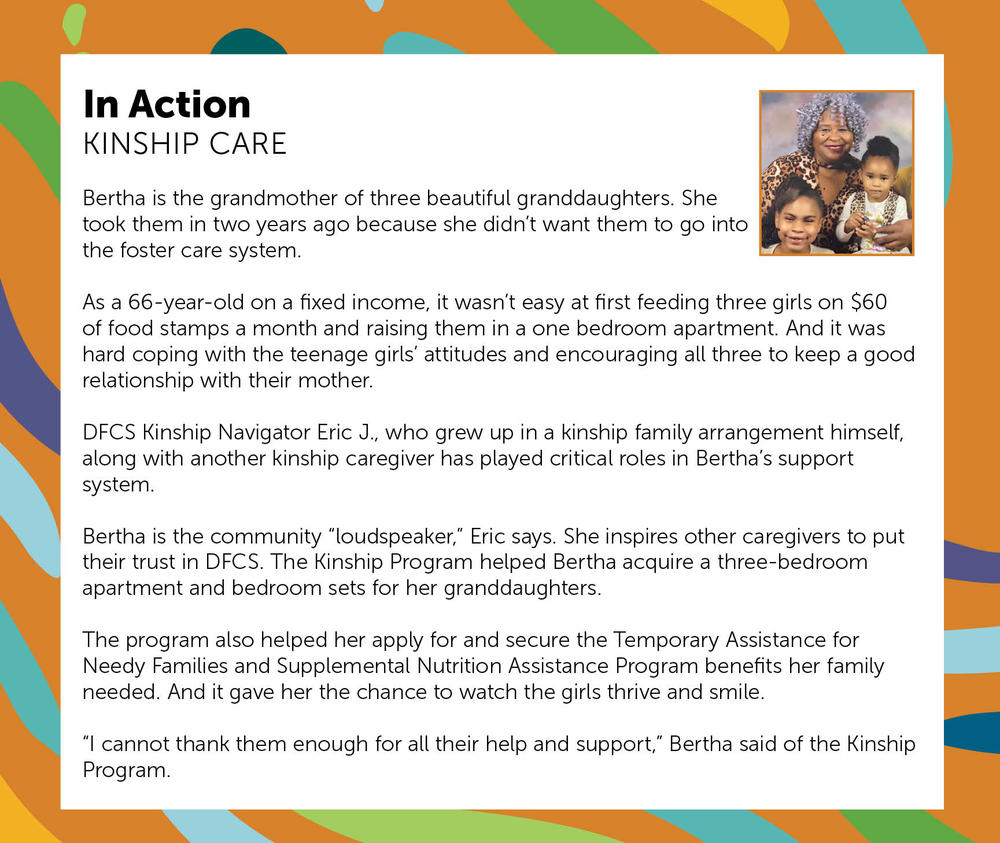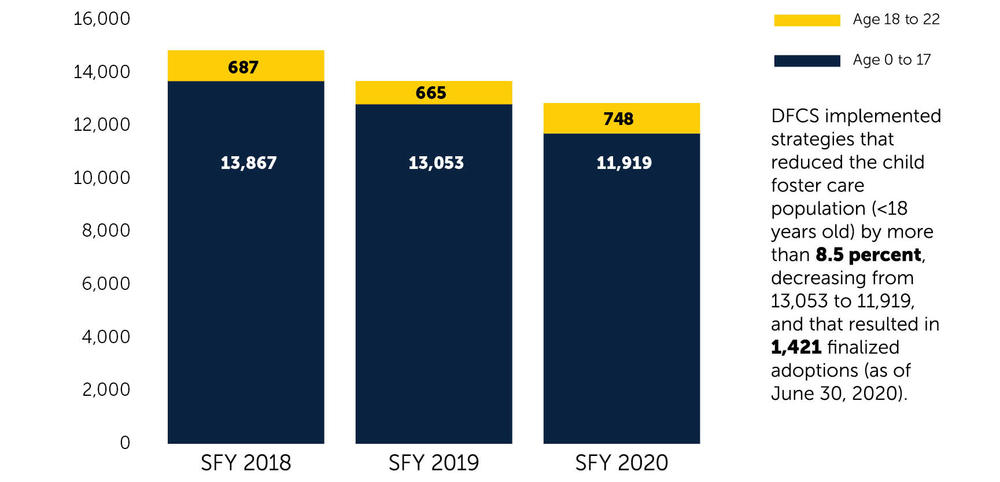
Child Protective Services
Child Protective Services (CPS) staff investigate reports of child abuse and neglect and work with caregivers, law enforcement and judicial partners to ensure the safety of Georgia’s most vulnerable children. When an allegation of child abuse or neglect is confirmed, caseworkers partner with families and community organizations to address issues that affect child safety in the home. In most cases, DFCS can work with families to address the safety concern and stabilize the home environment.
Foster Care and Adoption Services
When children are victims of abuse or neglect, and DFCS caseworkers determine they cannot remain safely in their homes, DFCS petitions the juvenile court to bring children into foster care to ensure their safety. Foster care is intended to be a temporary solution for children as the agency works with their families to eliminate the safety issues that required DFCS intervention. DFCS’ goal is to return children safely to their families as soon as possible, but only after the safety issues have been resolved. When parents consistently demonstrate that they are unable or unwilling to care for their children, DFCS works with the courts to find loving adoptive homes for them.
In SFY 2020, the division was on track to increase adoptions as in years past, but unfortunately, the program was affected by court closures caused by the Coronavirus pandemic. However, adoption staff and the courts adjusted and leveraged technology to host virtual adoption finalization hearings. As a result, DFCS fell slightly short of its goal to increase adoption finalizations. In SFY 2020, 22% of children exited foster care through adoption. Additionally, 25% of children designated as having special needs left foster care through adoptions. The adoption unit and members from the DFCS executive team host a monthly There’s No Place Like Home call to celebrate these adoption successes.
Structured Analysis Family Evaluation (SAFE) is Consortium for Children’s standardized home study methodology that has changed the way that public and private child welfare agencies study and evaluate prospective adoptive, kin and foster families. SAFE aids home study practitioners in performing a thorough, structured and uniform evaluation of families who have applied to foster or adopt. Georgia began with a pilot of the SAFE model in late 2018, having certified 239 DFCS and Child Placing Agency (CPA) staff. In 2019, approximately 511 DFCS and CPA staff were certified, for a total of 750 SAFE certified staff members throughout the state of Georgia.
Kinship Care
When a child is not able to safely remain in the care of their biological parents, relatives can step in to provide the stability they need during a difficult time. These arrangements are often called Kinship Care. Children who remain connected to their family, friends, school, extracurricular activities and community through these Kinship Care arrangements fare much better and experience less trauma than children placed in traditional foster care arrangements.
By the Numbers | Child Protective Services
- 34,970 reports of abuse or neglect of children were investigated by CPS staff in SFY 2020. The number of youths in foster care decreased by 16.5%
- 12 is the median number* of cases a CPS worker manages at a time
- Previously, this was reported as an average. Currently, the median figure is used, as it is less likely to be affected by extreme outlying values.
- 13,029 children were able to remain in their homes after their families received shelter, food, parenting classes or health referrals in SFY 2020

By the Numbers | Foster Care Services

- 18,449 children were in the foster care system on average at any point in time, representing
a decrease of 10% from SFY 2019 - 1,421 children were adopted by new families and given permanent homes
- 1,647 children were in foster care at the end of SFY 2020 and were available for adoption
- 31.3% of children in foster care were placed with a relative in SFY 2020
- 20 is the median* caseload for a foster care caseworker
- *Previously, this was reported as an average. Currently, the median figure is used, as it is less likely to be affected by extreme outlying values.
- 288,297 children in Georgia live with a relative caregiver, according to grandfamilies.org

Number of children & youth in foster care*
